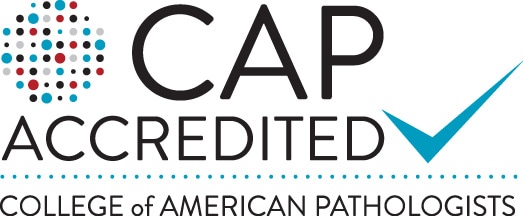CDC Biorepository

Vision
Achieve excellence in biorepository science to advance population health, patient care, and health.
Mission
Provide centralized biorepository services to facilitate CDC program activities that are fundamental to public health, surveillance, research, and outbreak response.

CAP Number: 834604
The Division of Laboratory Systems (DLS) operates the CDC Biorepository (CBR), which was established in 1997 as a centralized resource to preserve CDC’s valuable samples and provide ongoing support to CDC programs. With approximately 6.6 million biological and environmental samples, CBR strives to maintain best practices and standards, and offers sample management expertise to CDC programs. CBR does not accept samples from sources outside CDC.
For more information, contact biorepository@cdc.gov.
The CDC Biorepository offers a variety of centralized services to facilitate CDC program activities related to public health research. CBR is the largest federal biorepository in the United States to be certified by the College of American Pathologists (CAP). This accreditation validates that CBR meets or exceeds standards based on established biorepository best practices.
Scientists can use samples from CBR in their research to advance scientific knowledge, characterize new etiologic agents, investigate the cause of diseases, and develop new tests, vaccines, and treatments.
CBR’s collections also support and enhance ongoing national studies, such as the National Health and Nutrition Examination Survey (NHANES), National Wastewater Surveillance System (NWSS), Child Health and Mortality Prevention Surveillance (CHAMPS) Network, and Active Bacterial Core (ABC) surveillance program. CBR supports CDC during emergency response operations by providing services such as offsite storage of 1,000,000 samples from Puerto Rico during Hurricane Maria and managing 3,000,000 samples during the COVID-19 pandemic.
CBR provides sample storage and preservation with 24/7 monitoring to ensure sample integrity. CBR can accommodate diverse sample types, such as cryovials, DBS cards, ectoparasites and more. In addition, CBR can store samples at different optimal temperature ranges, including vapor-phase liquid nitrogen storage units which keep samples below -140°C), low and ultralow freezers that can maintain -20°C to -80°C, refrigerators that operate at 1°C to 4°C, and ambient temperature storage.
CBR serves as the administrator issuing CDC’s required standardized identifiers: the CDC Sample Identifier (CSID) and CDC Unique Identifier (CUID). Together, these identifiers establish a parent-child relationship. They ensure each CDC sample, along with its aliquots and derivatives, are identified uniquely and consistently and facilitate traceability and tracking across the agency.
CBR manages sample collections, along with associated information and data obtained from CDC’s public health surveillance, research, and outbreak responses. The data from sample collections are managed using a sample inventory management system.
CBR provides the majority of sample labels used for sample identification and tracking at CDC. In 2021, CBR provided nearly 8 million labels for the agency and ensured they were created to meet the needs of CDC programs.
CBR staff ensure cold-chain integrity during all aspects of sample handling. CBR meets program needs with quick turnaround times for requests like sample retrieval, transportation to a designated location, and sample destruction.
CBR provides liquid nitrogen for all Atlanta-area CDC campuses and continuous cryogenic monitoring for compatible units through its in-house 24/7 monitoring system. CBR works with programs to maintain liquid nitrogen sample storage units by providing consultations and repairs when needed.